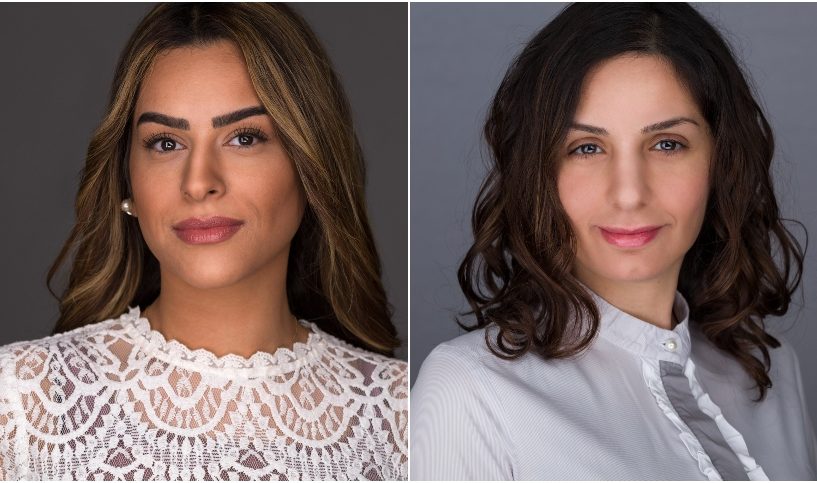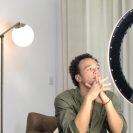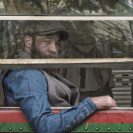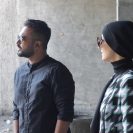RunKuwait is an annual charity run founded by Fawzia Sultan Healthcare Network (FSHN), and created to raise awareness and funds towards the rehabilitative treatment of special needs children in Kuwait. Maraheb Al Qallaf and Rouba Khair, the founders of RunKuwait both have impressive vitae’s when it comes to rehabilitating children with special needs challenges. Maraheb is a speech pathologist specialized in treating children with speech and language delay.
Rouba has extensive experience in rehabilitating children with a wide range of growth and developmental disorders; including Attention Deficit Hyperactivity Disorder (ADHD), sports injuries, traumatic brain and spine injuries, genetic disorders and congenital anomalies, and much more. Not only that, but they are both fans of humanitarian work and that is why they pour their hearts into what they do. In their latest interview with bazaar, Maraheb and Rouba answered some of the most anticipated questions regarding RunKuwait.
Why did you decide to start RunKuwait? Why a race to raise awareness and funds? Are you runners yourself?
Maraheb: RunKuwait is a charitable initiative [with an] objective to raise awareness and funds for our non-profit Children’s Evaluation and Rehabilitation Center, which is the pediatric branch of FSHN. Kuwait has a diverse population and being able to raise awareness, treat children and support families from disadvantaged backgrounds is important to me as a clinician.
RunKuwait is a community-based event. The event is not limited to professional runners but it is also open to people of all ages and abilities to show support for children with disabilities. Participants can either run or walk to show their support. The event is designed to be a fun day for all including family-friendly activities. It is also a great day to share personal experience, emotionally support families with children with disabilities, socialize with others, and have fun.
Rouba: Fawzia Sultan Health Network started RunKuwait on 2010 as an initiative to support the community in Kuwait. Since 2013, all the registration proceeds are channeled directly towards the non-profit Children’s Evaluation and Rehabilitation Center, founded by FSHN.
Running is a healthy, energetic way to bring awareness to the needs of children in our community. I participated in earlier events but now I have management roles on the day of the events.
Why do you think the event has become so popular? Was this what you imagined when you first started?
Maraheb: Donating to charity is part of the Kuwaiti culture and tradition and is seen as part of ‘normal’ life. It is only recently that more established non-profit/charitable organizations have gained formal recognition for their work locally. Charitable organizations/non-profit organizations are gaining increased recognition in supporting all populations in the local region, instead of donations going in part to other third world countries. Our event also gained its popularity by being held regularly in November each year. In addition, the rise of social media allowed us to show the community our cause.
Rouba: Due to the walk – run nature of the event it is family friendly and [people of] all ages can participate. Since the community is now more aware of the [needs of the] children, the community has built a collaborative spirit. We know that Kuwait values family and children. We expected the number of participants and popularity [to] increase every year.
Organizing an event that is as huge as RunKuwait must be challenging. How do you manage it all?
Maraheb: Indeed. However, we have been always working as a team- a multidisciplinary team with different specialties. To make such an event successful, we always need to work in harmony and collaboratively, divide tasks, have trust, and believe in each other.
Rouba: RunKuwait requires a huge effort. FSHN [works as a team], hand in hand like a beehive to make RunKuwait successful.
Has there been a change in the attitudes in Kuwait towards individuals with special needs?
Maraheb: Nowadays, the stigma imposed against children with disabilities has slightly faded. People are more aware and acceptable to this population. I’m seeing many parents that are more comfortable in taking their disabled children out in public. They are not afraid of people’s looks anymore because of the comprehensive support that they and their children [are receiving]. RunKuwait aims to make the community aware that the special population actually “need” them to survive within. We want to see Kuwait’s commitment to supporting families in need and also demonstrate the continued commitment of the population to support our cause. We usually read or hear about how western societies develop new strategies and policies rapidly to aid the lifestyle of people with disabilities and limited resources. We would like to make this happen here in Kuwait.
Rouba: People in Kuwait are more aware of the capabilities the children can achieve with the proper services and support. They are aware that those children, with proper rehabilitation, can be productive members of the community.
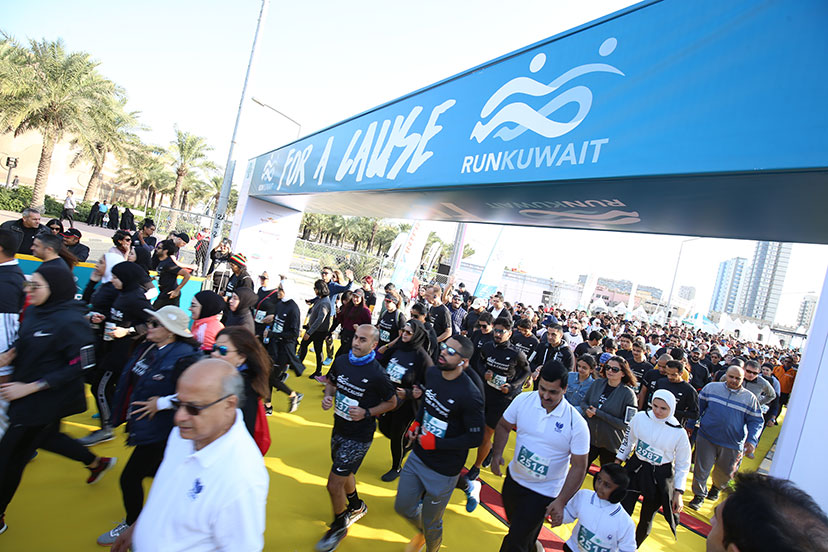
You work with special needs children, what made you choose that as a career? How has it changed you as a person? What is the hardest thing about what you do? What is the best thing about what you do?
Maraheb: My brain loves medical and healthcare sciences and my heart adores humanitarian work [so naturally], Speech-Language Pathology gave me exactly what I was looking for. I wanted to make a difference in a person’s daily life and help others communicate and advocate for their wants and needs. During my studies in the United States and working experience in Kuwait, I interacted with many people from different cultures. They are all different but we all agreed that we needed to support their loved ones by getting high quality intervention. Therefore, the hardest thing to do is trying to change the mindset of others to accept the current situation and function with the available options. My reward as a therapist after all is seeing my clients and their families happy with the therapy results.
Rouba: Both of my parents are physiotherapists. I took the decision to continue my parents’ mission to help people with special needs. Being a pediatric physiotherapist changed a lot of my personality. I began singing, dancing, talking about all the cartoons and searching out what interests the children I see. [It also] teaches you how to be patient to achieve gradual results. The hardest thing is when you deal with degenerative cases or handle the question of a child asking you why he can’t walk like other children. The best thing is when a child takes his first steps in a session.
What do you wish everyone knew about children with special needs?
Maraheb: Every child is different and has unique skills. Children with special needs appreciate socialization with others. If they had the opportunity to play and speak to others, people would notice how wonderful disabled children can be.
Rouba: Children with special needs have a lot of potential, which allows them to be productive members in the community. They just need the right support. These children work hard and show a lot of determination.
What are the other ways that people can help your cause with? What are the other activities that you do to help?
Maraheb: People can help our cause by participating in the event. They can either walk or run as we offer two distances 5km and 10km. Their attendance is much appreciated, as it would emotionally support children and their families. In addition, as clinicians- we have workshops and lectures year-round to educate parents, healthcare providers, and teachers etc. about relevant topics to understand how to deal with children from the special population.
Rouba: People can support by participating in the run, or by contacting us to see alternative ways to support as a volunteer in the clinic.
What are your future plans for RunKuwait? What would you like to see RunKuwait become in the future?
Maraheb: RunKuwait will continue to be in November every year. It is hoped that people will continue to support us every year to allow children with special needs to have consistent access to their rehabilitative care. It is also hoped that participants in the run will link with our social media accounts. Here, they can gain more awareness through the various educational information we post. In turn, this will help support parents and the public in appropriate identification and treatment of children in need.
Rouba: We plan to continue the run every year and we aim to increase the number of participants. This will allow us to broaden our reach to provide more rehabilitation services to more people in the community. I want to see RunKuwait as an annual event that every community member is eagerly waiting for.
For more information, follow @fshn_kw or @RunKuwait on Instagram and Facebook.

